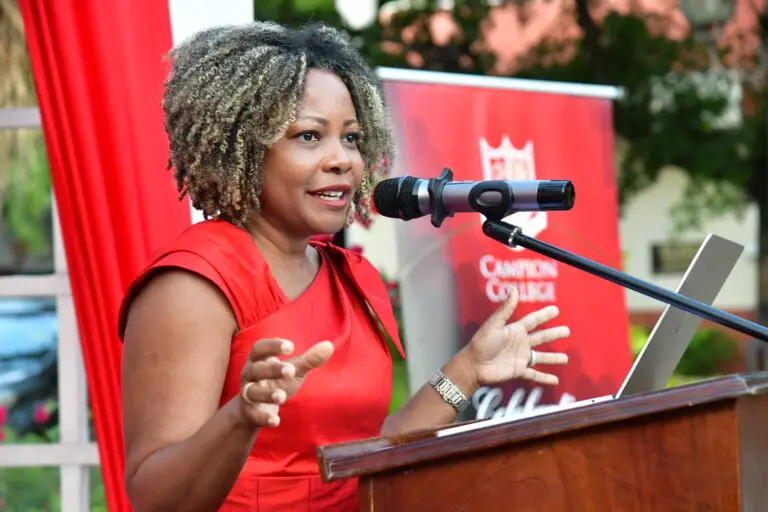Education Minister Dr. Dana Morris Dixon has called for a collective effort to address the disappointing performance of Jamaican students in last year’s Caribbean Examinations Council (CXC)-administered exams. The minister has stressed that the failures are not just a reflection of the Ministry of Education’s efforts, but of the entire nation’s involvement—or lack thereof—when it comes to education.
At a media briefing held by the Education Transformation Oversight Committee, Dr. Dixon pointed out that education should not be the sole responsibility of the government but must involve every sector of Jamaican society. From the private sector to community groups, she urged all Jamaicans to actively participate in transforming the education system to improve students’ academic outcomes.
The stark reality of the exam results reveals a crisis that can no longer be ignored. The statistics from the Ministry of Education show that in mathematics, Jamaica recorded a 37.3% pass rate in 2022, a slight improvement to 38.9% in 2024. Similarly, English language saw a decrease from 77.2% in 2022 to 76.4% in 2024. These figures are a clear indication that students continue to struggle with the fundamentals of education—skills that are essential for success in life and the workforce.
The target for this year is to increase the pass rate in mathematics to 49% and reach an 80% pass rate in English. However, achieving these goals will require immediate and sustained action from every Jamaican.
The failure of students to meet basic benchmarks is not just an academic issue—it is a socioeconomic one. A nation with a population of functionally illiterate and innumerate young people is doomed to face severe economic consequences in the future. The lack of investment in education is not just a failure of the system; it is a failure of national priorities, and the repercussions will be felt by all, particularly in the economy.
Enough is enough. The time for finger-pointing is over. The education system has its flaws—there’s no denying that. Teachers, who work under difficult conditions, are often left to shoulder too much responsibility. Meanwhile, parents, many of whom are overburdened or disengaged, are not reinforcing the importance of education in their homes. For too long, we have seen a vicious cycle of blame: teachers blame parents, parents blame teachers, and the government blames society. The private sector remains passive, providing minimal support despite its obvious stake in a well-educated workforce. It’s the students who suffer, with many leaving school unprepared for higher education or the workforce.
The solution lies in systemic change. The Minister’s words must translate into action. The government must allocate more resources to schools, invest in human capital, and incorporate technology into the classroom. But the onus isn’t on the government alone. Parents need to create environments at home that encourage learning, fostering a culture of academic excellence.
The private sector must recognize that the success of businesses is directly tied to the success of the education system. Complaints about unskilled graduates ring hollow when there is a lack of investment in educational initiatives. It’s time for companies to partner with schools, invest in resources, and improve infrastructure.
Finally, the community must no longer remain passive. We must advocate for change and hold leaders accountable. The saying “it takes a village to raise a child” holds true, and our villages must step up to ensure that education becomes a national priority.
The future of our children, and by extension, the future of Jamaica, depends on all of us working together to tackle this pressing issue.






